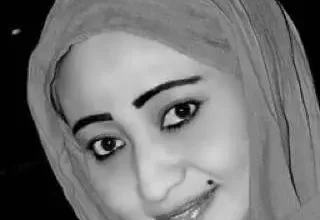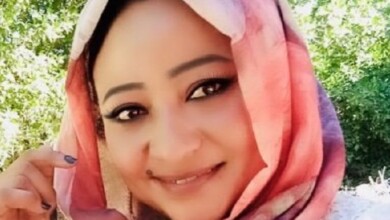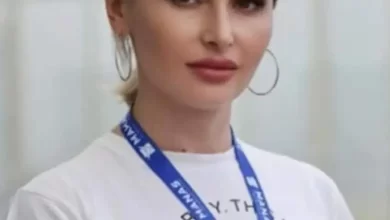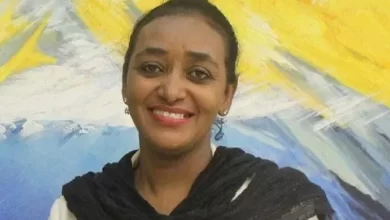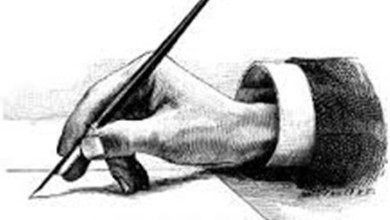Noting the Existence of Wounds: Restoring possible balance
Dr. Al-Waleed Adam Madibou

The Sudanese people no longer have the luxury of postponement or the space for denial. Amidst the fires of war, the fragmentation of the territory, and the collapse of meaning, the country teeters on the brink of extinction.
Thousands are displaced on a daily basis, cities are being erased from existence, and hearts overflow with anger, regret, and disappointment. We’re not party to a moment of fleeting political disagreement, but rather facing a psychological and collective rift that has reached deep within the conscience and is on the verge of destroying the last remaining bonds that unite this nation, as we’ve been tossed about by the elites and led from one disappointment to another.
It has become rather absurd to discuss emerging from the crisis without a serious and profound recognition that we are all in trouble: elites and people, Islamists and others, Arabs and non-Arab, Regular Forces and civilians, Zaghawa and Atawa, the Center and the marginalized. Everyone is in crisis, and each party drags behind it a history of defeats, entanglements, or negligence. Unless we confront this dilemma with moral courage and responsible self-criticism, we will remain prisoners of narratives of conflict and polarization, in addition, the homeland will slip through our grasp, just as meanings seep out of a grieving heart.
What we are experiencing today cannot be explained solely by the tools of traditional politics. We are facing a structural dilemma that continues to reproduce itself, a dilemma in which narratives, identities, and interests are intertwined and interwoven, to the point that the situation has become similar to what political science calls “Game Theory”: As each side believes its victory is contingent on the loss of the other, while the entire nation, both in the Center and the margins, are experiencing a double loss.
Islamists are experiencing a moral dilemma because their discourse has been hijacked by an extremist movement claiming to represent Islam, while moderates who still believe in the legitimacy of a unified homeland are being marginalized. Northerners are suffering through an existential crisis because they have colluded for centuries with the Central Authority and contemplated —consciously or unconsciously— the injustice befalling non-Arab communities and the oppression of vulnerable groups, only to later find themselves the target of retaliation. The Atawa (Rizeigat in particular) have been used for decades as tools in the hands of the Center, until they became part of an unavoidable power equation that cannot be eliminated or monopolized without significant losses.
The non-Arab (Zaghawa in particular) are in trouble because armed factions have hijacked their political representation in the name of the gun, not popular legitimacy. The Masalit, despite the morality of their cause, have mortgaged themselves to the military elite, which seeks no solution but rather to perpetuate the crisis by seeking to generate militias. Which begs the question: Will the Dar Masalit issue remain a wound that festers without healing, and at what cost?
Will Sudan continue to be held hostage to hate speech and bloodshed, a breeding ground for injustice and the incitement of resentment?
Unless we succeed in transforming this conflict into a win-win equation. At this juncture, “Game Theory” comes to mind -again- as an analytical lens that can illuminate a way out. As conflicting parties, we act like prisoners in a classic dilemma: Each side prefers to betray the other for fear of being deceived, thus costing the collective the possibility of an opportunity. However, we’re not living a prisoner’s dilemma; we are living a nation’s destiny, and we have no choice but to steer this equation towards a “win/win” situation. This can only be achieved through our mutual recognition and abandoning the “all or nothing” mentality.
What we need in Sudan isn’t a repetition of the Rwandan model, despite its lessons. The Sudanese wound is too vast and complex to be reduced to the binary equation of two tribes. The South African experience is the closest to what we are going through: A country torn apart by racism and plagued by a bloody past, then rose up, not through vindictive trials or misleading generalizations, but through a “Truth and Reconciliation Commission,” which made acknowledgment of wrongdoing a prelude to forgiveness, not a prelude to justification.
In South Africa, the executioner wasn’t asked to love his victim, nor was the victim required to forget their wounds. Rather, both parties were asked to acknowledge the truth and contribute to shaping a shared future. This is the essence of the transitional justice we need in Sudan. A justice that is far from satisfied with punishment or forgiveness, but rather seeks to achieve moral and national balance by redistributing meaning and trust before wealth and power.
I am rather confident that our national and religious heritage has the wisdom to qualify us to fulfill this role, even if we currently lack the exceptional leadership and courage of the great. We only need a new national narrative that doesn’t reproduce injustices, but acknowledges them and addresses their roots. A narrative that engages everyone in writing a new social contract, one that places the nation above partial identities and temporary interests. If each party continues to write its own narrative, the memory will remain divided, and blood will remain permissible. However, if we agree on a single narrative —one of collective tragedy, shared responsibility, and possible hope— we may survive, and perhaps even build something more beautiful than what was destroyed.
April 23rd, 2025

